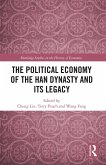War, Power and the Economy contains a comparative history of Great Britain, France and Spain, the three rival empires of the 1700s. It explores how the states prepared for war, what kind of economic means they had, what institutional changes they implemented, and how efficient this was. As such, the book presents the first comparative synthesis aiming to understand the outcome of the global confrontation in the eighteenth century.¿ Faced with the challenge of paying for new and more costly wars, some countries found flexible ways to get more money and better supplies, whereas others did not. The development of freer colonial markets, the increase of consumption and its taxation, the problems of venal administration or the different systems of patronage with contractors, are some of the factors explaining the divergences that were made clear by 1815. This book explores political and economic dimensions of the eighteenth-century European state in order to explain why and how changes in power as an outcome of war depended upon the available means and the way they were obtained and used. The book takes the idea that making war or preparing for it obliged governments to make important changes in their institutions, so that during the eighteenth century the state in many ways formed itself through war efforts. Ultimately, this study aims to show how closely political and military success was entwined with economic interests. This volume is of great interest to those who study economic history, political economy and European history.
Hinweis: Dieser Artikel kann nur an eine deutsche Lieferadresse ausgeliefert werden.
Hinweis: Dieser Artikel kann nur an eine deutsche Lieferadresse ausgeliefert werden.








